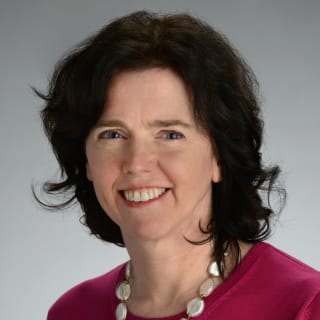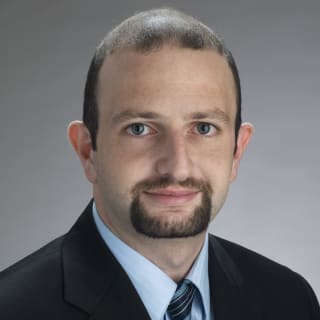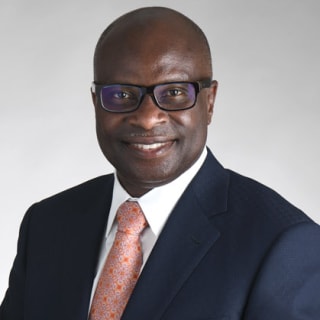
Akinlolu O Ojo MD PhD
Executive Dean, University of Kansas School of Medicine
Join to View Full Profile
3901 Rainbow BoulevardMurphy 3015Kansas City, KS 66160
Phone+1 913-588-7201
Dr. Ojo is on Doximity
As a Doximity member you'll join over two million verified healthcare professionals in a private, secure network.
- Gain access to free telehealth tools, such as our “call shielding” and one-way patient texting.
- Connect with colleagues in the same hospital or clinic.
- Read the latest clinical news, personalized to your specialty.
Summary
- Dr. Akinlolu Ojo is a nephrologist in Kansas City, KS. He received his medical degree from University of Lagos College of Medicine and has been in practice 32 years. He is experienced in hypertension chronic kidney disease and kidney transplantation. He has more than 200 publications and over 5,000 citings.
Education & Training
 University of MichiganFellowship, Nephrology, 1992 - 1995
University of MichiganFellowship, Nephrology, 1992 - 1995 University of Kentucky College of MedicineResidency, Internal Medicine, 1988 - 1991
University of Kentucky College of MedicineResidency, Internal Medicine, 1988 - 1991 University of Lagos College of MedicineClass of 1985
University of Lagos College of MedicineClass of 1985
Certifications & Licensure
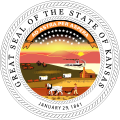 KS State Medical License 2019 - 2025
KS State Medical License 2019 - 2025 AZ State Medical License 2016 - 2020
AZ State Medical License 2016 - 2020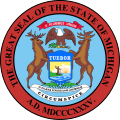 MI State Medical License 1992 - 2017
MI State Medical License 1992 - 2017 WA State Medical License 1990 - 1992
WA State Medical License 1990 - 1992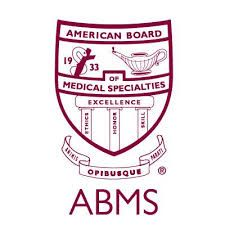 American Board of Internal Medicine Nephrology
American Board of Internal Medicine Nephrology
Awards, Honors, & Recognition
- Elected member, National Academy of Medicine National Academy of Medicine, 2022
- Elected member, Association of American Physicians Association of American Physicians, 2012
- Elected Member The American Society for Clinical Investigation, 2005
Clinical Trials
Publications & Presentations
PubMed
- 1 citationsPatient Education for CKD and Decision Support in Primary Care: Findings From the EPIK Pilot Study.Julie Wright Nunes, Eve Kerr, Akinlolu Ojo, Corey Powell, Audrey Fan
American Journal of Kidney Diseases. 2025-03-01 - 5 citationsBi- and Monoallelic Variants and Chronic Kidney Disease in West Africans.Rasheed A Gbadegesin, Ifeoma Ulasi, Samuel Ajayi, Yemi Raji, Timothy Olanrewaju
The New England Journal of Medicine. 2025-01-16 - Use of Federal Reimbursement for Living Donor Costs by Racial and Ethnic Minorities: Implications for Disparities in Access to Living Donor Transplantation.Amit K Mathur, Nathan Goodrich, Barry Hong, Abigail R Smith, Rebecca J Mandell
Transplantation. 2024-12-01
Press Mentions
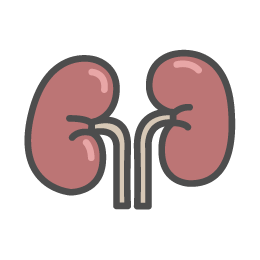 GEHA Funds $1.5 Million Scholarship to Address Lack of Diversity in MedicineSeptember 19th, 2022
GEHA Funds $1.5 Million Scholarship to Address Lack of Diversity in MedicineSeptember 19th, 2022 Can a Kidney Failure Risk Equation Better Predict ESKD, Regardless of Race?January 11th, 2022
Can a Kidney Failure Risk Equation Better Predict ESKD, Regardless of Race?January 11th, 2022 Healing the HealersJuly 1st, 2021
Healing the HealersJuly 1st, 2021- Join now to see all
Grant Support
- All of Us Research Program Heartland Consortium (AoURP-HC)UNIVERSITY OF KANSAS MEDICAL CENTER2023–2025
- All of Us Research Program Heartland Consortium (AoURP-HC)UNIVERSITY OF KANSAS MEDICAL CENTER2023–2025
- A Clinical Trial To Prevent New Onset Diabetes After TransplantationNational Institute Of Diabetes And Digestive And Kidney Diseases2011
- Renal And Cardiovascular Events In Patients With Chronic Kidney DiseaseNational Institute Of Diabetes And Digestive And Kidney Diseases2009–2011
- Chronic Renal Insufficiency Cohort (CRIC) StudyNational Institute Of Diabetes And Digestive And Kidney Diseases2008–2011
- Prospective Cohort Study Of Chronic Renal InsufficiencyNational Institute Of Diabetes And Digestive And Kidney Diseases2001–2008
- High Dose Folic Acid, Vitamins B6 &B12 On Arteriosclerotic Cardiovasc OutcomesNational Center For Research Resources2005–2007
- Chronic Renal Insufficiency Cohort Study (CRIC)National Center For Research Resources2004–2007
- Clinical Center: Medical And Quality Of Life Outcomes After Live Kidney Or Lung DNational Institute Of Allergy And Infectious Diseases2006
- Physician Peer Minority Organ Donation Education ModelNational Institute Of Diabetes And Digestive And Kidney Diseases2002–2006
- Cardiovascular And Renal Events In Kidney DiseaseNational Institute Of Diabetes And Digestive And Kidney Diseases2002–2006
- High Dose Folic Acid, Vitamins B6 &B12 On Arteriosclerotic Cardiovasc. OutcomesNational Center For Research Resources2004
- Supply, Evaluation And Selection Of Living Renal DonorsNational Institute Of Diabetes And Digestive And Kidney Diseases1997–2001
- Socioeconomic Factors Impact On Renal Allograft SurvivalNational Institute Of Diabetes And Digestive And Kidney Diseases1995–1996
Viewing the full profile is available to verified healthcare professionals only.
Find your profile and take control of your online presence:

